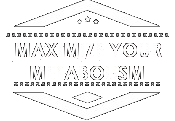“We have so many options on the dietary supplement market for weight loss. So, here’s an article that lists the supplements that work and don’t work.”
No website about maximizing your metabolism would be complete without a few words on taking a dietary supplement. Since its use—and accompanying controversy—seem to be everywhere.
More than four out of every ten adults in the U.S. take vitamin and mineral supplements, or herbal and non-herbal concoctions. People take these products in order to stimulate metabolism, curb appetite, or yield one of a myriad of other desirable outcomes.
As a nation, we spend more than $3 billion annually on supplements. That makes this category of products the third largest in terms of over-the-counter sales.
Hundreds of these products go straight to the heart of the dieting and weight-loss business, promising faster weight loss, higher metabolism, and a variety of other benefits ranging from enhanced sexual performance to fewer wrinkles.
What Is A Dietary Supplement?
Dietary supplements are preparations—in many cases a pill, but frequently in liquid or powder form—that contain nutrients which are intended to supply the body with adequate, or more than adequate, supplies of what the body needs to function at a certain level.
Certain supplements can enhance your metabolism, improve your physical performance and health, alter your bodily make-up, and help you achieve a variety of other important goals. Many are designed to help you achieve optimal nutrition, and to make up for the failure of consuming foods that can provide appropriate daily levels of all the nutrients you need to thrive.
Metabolic Goals Of Supplementation
In addition to improving overall health, supplements offer the student of good health an opportunity to focus on a number of goals specific to metabolic change, including increases in:
- Muscle mass. By increasing muscle mass, you increase your metabolic rate—by fifty calories per day per pound of muscle added!
- Muscle work capacity. By increasing the aerobic and anaerobic capacity of your muscles, you heighten the amount of work your muscles can do, and you increase your fat-burning capacity accordingly.
- Energy expenditure. By increasing your energy use, you increase the number of calories you burn each day. The more energy expended, the greater the number of calories burned.
Should You Use Supplements?
I’m often asked about supplements, and my advice is invariably the same: This program is founded on the principle that good health and maximum metabolism can be accomplished by increasing your energy expenditure in a certain way (as detailed in a later article on exercise) while decreasing your intake of certain foods and increasing your intake of others (see the article on diet). However, you can accelerate the process by systematically adhering to a program of healthful supplement use at the same time.
- Ultimately, the advisability and effectiveness of using a dietary supplement comes down to the question of whether or not you can maintaining a healthful, well-balanced diet that provides all the vitamins, minerals, fiber, enzymes, and other nutritive components that you need to maintain vigorous and viable good health. Unfortunately, for most people the answer to that question is NO.
In today’s society, the soils in which our fruits and vegetables are grown tend to be over used and are rarely given enough time between crops to replenish their nutrient content. And soil that lacks nutrients tends to produce crops that also lack nutrients. Top that off with the fact that in order to have a good crop, season after season, farmers add literally tons of pesticides to our “natural” foods to ensure that the insects won’t devour it.
A healthful diet is an essential start! Without that ingredient, we have nothing to build upon.
An active lifestyle is a good second step toward attaining great health and a strong metabolism.
Among the other components laid out for you in this website, you must also add a good source of nutrients to your daily regimen.
My Recommendation
There are so many supplements on the market that I can’t go into great detail about any one product, but I will say that in all my years of working with people, I’ve found only one type of vitamin/mineral supplement that truly encompasses every aspect of what we need as humans to survive and thrive, and that is . . .
- a 100% natural, plant-derived, powdered nutritional drink
There are many products out there that fill the bill. When you set out to look for a quality product, make sure you choose one that is composed of nutrients derived from a combination of several different sources, such as spirulina, barley, chlorella, seaweed, and other plants and herbs.
Also, make sure that your product of choice is made only from organic sources. Then consume one, two, or three servings of this natural concoction each and every day.
I have been recommending this type of dietary supplement to my clients over the years, for four main reasons:
- It’s all natural
- You get everything you need in one delicious glass rather than having to take a handful of pills
- It contains all the nutrients that scientists have discovered, and some that they have yet to discover
- It’s 100% bio-available, meaning that every nutrient that’s in each scoop you consume is assimilated and used to build the health of every cell in your body (as opposed to man-made supplements that are created in a lab, then pasteurized and dehydrated, and finally melted into a pill)
* Many man-made supplements are created from sources that the human body cannot assimilate. In reality, only 20 to 50 percent of what’s in many of those pills is actually usable by your body.
Our Dietary Supplement Need
The need for a nutritional additive, like a dietary supplement, in our diet is obvious:
- The average American diet tends to completely lack the optimally healthful foods that I’ve mentioned before. Instead, it’s way too heavy on fast foods such as hamburgers, french fries, and soft drinks.
As a nation, we abuse our bodies nutritionally, thereby compromising our ability to absorb even the small amount of nutrients still found in the foods we eat. It’s been said that a large percentage of people live most of their lives in a malnourished state—and are therefore plagued by chronic low-grade health problems, including:
- fatigue
- headache
- weight fluctuations
- sleep disorders
- digestive discomforts
- stress-related difficulties
Not only are our diets to blame for poor health, but we’ve also had a series of formidable obstacles along our road to better health:
- pollution,
- stress,
- irregular meals,
- toxins and additives in our foods,
- and a variety of external pressures that, together, can push our body’s systems to the edge.
Now bear in mind that you cannot take a crummy diet, add supplements to it, and assume that all will be fine. Nonetheless, let’s move on to the topic you’ve been waiting for . . .
Supplements that actually help to increase your metabolic rate (as opposed to those that only claim to do so).
There are a multitude of supplements that can help. The problem is that some folks find it difficult to separate those that actually work, from those that only claim to work. After reading this article, you will know how to wisely choose a dietary supplement based on your particular needs.
What Are We Talking About?
Whenever I launch into a discussion about supplements, I find it helpful to draw clear lines about the category of supplements I’m talking about. At this point, I’m not discussing dietary supplements that are intended to provide a certain daily vitamin or mineral level. We’ve pointed out the importance of that type of dietary supplement earlier in this article. Nor am I addressing the myriad of pharmaceuticals and other medical preparations that are prescribed by doctors for their patients who need them.
This article is about the few supplements that you could consider for use in your program, together with a short discussion of some that you should avoid.
Individual Results Vary
Not everyone who uses a dietary supplement will enjoy results that are identical to those that some friend or family member has told them about, but that’s to be expected. After all, we’re all different.
The outcome of dietary supplement use will vary according to such things as:
- genetic factors
- body’s ability to digest, absorb, and utilize the particular supplements you ingest
- current state of health
- past and current dietary habits
The bottom line is that in using a dietary supplement, each of us is undertaking an experiment. Try some of the supplements that you think may be helpful to your program, and then evaluate your results over time, closely following the manufacturer’s and your doctor’s recommendations.
Natural Metabolism Enhancers
In the dietary supplement market there has been a pronounced emphasis on metabolic enhancement and weight loss. As a result, creating new natural metabolism enhancers and appetite suppressants have been the main focus of the natural product industry. We will now examine the ingredients most commonly associated with weight loss and metabolic enhancement.
The public receives a considerable amount of incorrect information on supplements. This false information has been magnified by the internet, with many individuals and dietary supplement companies sourcing and profiting from this incorrect information. The information in this article will help to shed light on the facts based on scientific studies.
Which Dietary Supplement Does Work For Weight Loss?
Gymnema sylvestre
Gymnema sylvestre is the leaf of a tree native to Africa and India. Traditionally, people chewed the leaves, which caused an inability to recognize sweet flavors. For this reason, gymnema sylvestre has the nickname, the “sugar destroyer”. (23) Scientists have found that gymnemic acid, its active ingredient, increases the activity of enzymes responsible for glucose uptake and use. Thus aiding in fat loss and increasing the metabolism.
People also use this herb as a stomachic, diuretic, astringent, and tonic. Studies have shown that it increases urine output and reduces hyperglycemia in both animals and humans.
Bitter melon
People cultivate bitter melon throughout the tropical regions of the world. And people have used it as a food as well as a medicine. This fruit is controls appetite, prevents overeating, and regulates blood sugar levels. It improves the body’s ability to use blood sugar and get blood sugar into the cells of your body. Bitter melon improves glucose tolerance without increasing blood insulin levels which is an important part of digesting and utilizing carbohydrates without the added risk of storing additional body fat. In a study published in the Journal of Ethnopharmacology in 1986, researchers found 100 ml of bitter melon improve glucose tolerance by 73%. (24)
Gugulipid
Scientists know the ability of Gugulipid to lower cholesterol since testing began on guggul in the late 1960s. Recent research has confirmed that Gugulipid can also stimulate the thyroid, creating thermogenesis that can positively affect metabolism and weight loss.
Gugulipid has the ability to burn away stored fat by “resetting” the body’s “fat thermostat” a few degrees higher.
- In a study conducted in India in 1995, Bhatt et. al. found that Guggulu helped in weight loss. Fifty-eight obese adults were studied; twenty-seven ate a diet of 1200-1600 calories and took a half hour walk per day, while thirty-one did the same but also took 1.5-3 grams/day of Guggulu. After thirty days, the Guggulu group had a mean weight reduction of 2.25 kg more than in the non-Guggulu group. All patients in the Guggulu group lost weight, while three in the non-Guggulu group did not. (25)
Gugulipid is non-toxic, well-tolerated, and safe for human use as a dietary supplement.
Guarana (Caffeine)
Guarana is a berry that grows in Brazil and Venezuela. It is often the caffeine of choice that is combined with herbs to produce a higher metabolism. It contains a large amount of guaranine, which is chemically identical to caffeine. Caffeine has the ability to suppress the appetite, creates a thermogenic blend that works as a metabolism booster to aid in weight loss.
In the U.S., people often use guarana to boost stamina and endurance, or to help lose weight, or to stay alert.
Coleus Forskohlii
Coleus is a perennial plant in the mint family. Forskolin, a chemical found in coleus, activates an enzyme (adenylate cyclase) that affects every cell in the body and significantly influences metabolic processes. Forskolin can improve calcium concentration in cells, increase thermogenesis and lean body mass, and promote weight loss. (21) The calcium concentration in cells is important for muscle contraction, secretory processes, hormone function, and to promote the health of vital body organs. Coleus aids in weight loss and maintenance of lean body mass due to its ability to break down stored body fat, as well as inhibit the synthesis of adipose tissue. It increases thyroid hormone production and the release of fatty acids, thereby increasing metabolism. Coleus may also reduce inflammation and improve blood pressure and cardiac function.
Two recent studied suggest that coleus forskohlii has significant metabolic qualities.
- In one study conducted in 1999, six overweight women took 250 mg. of coleus forskolin extract two times daily for eight weeks. During the study, body weight and fat content decreased significantly, while lean body mass increased significantly. The average weight loss was about 9 pounds. (21)
- Dr. Richard Kreider, a respected sports nutrition professional, recently studied 23 overweight females who received 25 mg of forskolin two times a day for twelve weeks, while others received placebo. The forskolin group had a decrease in bodyweight while the placebo group experienced weight gain. Those in the forskolin group also reported more energy and decreased appetite. Dr. Kreider concluded that coleus may promote weight and fat loss and diminish weight gain in overweight subjects. (22)
Although there has not been a great deal of clinical research regarding the effects of coleus on weight loss, the existing information is very promising.
Vanadium
Research at the Grand Forks Human Nutrition Research Center supports vanadium as an essential nutrient that is beneficial for thyroid hormone metabolism. Vanadium has several physiological insulin-like effects, making it likely to have a positive effect on carbohydrate metabolism and weight loss. Vanadium may also inhibit appetite and curb cravings. The decrease in body weight caused by vanadium can be largely ascribed to less food intake caused by taste aversion and a possible effect at the appetite center. (26) Studies have also shown that the insulin-like properties of vanadium may benefit those with diabetes.
Glucosamine sulfate
Glucosamine is a unique, patented ingredient that burns fat, which results in weight loss. (27)
The effect of insulin on the formation of fatty acids in the body is delayed by glucosamine, indicating that glucosamine plays a role as a messenger for this insulin effect. (29)
For example, the body secretes insulin when the sugar content is high and allows for fat storage. The body can’t metabolize fat cells when there are high insulin levels in the body. High insulin levels also trigger the hypothalamus to send hunger signals, which sets off carbohydrate cravings. Thus one eats more, which leads to even more insulin release. The body converts these extra carbohydrates into glucose. And then the body stores the glucose inside itself as fat.
In a clinical study, researchers found glucosamine burns stored fat. The researchers found that when one uses glucosamine as directed, glucosamine is a safe dietary supplement that promotes weight loss. (28)
Chitosan
Chitosan is a form of dietary fiber that is most commonly derived from shellfish. Like dietary fiber, chitosan is not digestible but is believed to benefit the gastrointestinal tract. Studies have shown that taken with ascorbic acid (vitamin C), it forms a gel in the intestines which binds to fat and prevents absorption, allowing these fats to be eliminated from the body. Scientists believe that this ability is linked to chitosan’s strong positive magnetic charge, which enables it to easily bind to fat, which is negatively charged. (30) Chitosan has other benefits as well; for example, it reduces plasma cholesterol. (31)
Supplements That Are Cause For Concern
While there are many dietary supplements that are extremely helpful in promoting metabolism and weight loss, there are also supplements and chemicals that you may do well to avoid.
Ephedra (Ma Huang)
For over three thousand years, people in China have used the herb, Ma Huang. Ephedra contains ephedrine alkaloids, which are naturally occurring compounds found in plants. Another alkaloid in Ma Huang is pseudoephedrine. Pseudoephedrine is less potent than ephedrine and is used in common cold remedies.
Although this herb works to heighten a person’s metabolism, it is often misused. Thus it falls under my list of those that are a cause for concern.
For the last several years, there has been a great deal of debate involving the use of weight loss products that contain ephedra (also known as Ma Huang). Some medical professionals have claimed that ephedra is unsafe, but on the other side of the coin are millions of consumers who safely use these products to aid them in weight loss.
The only way to understand what is accurate about ephedra regarding its safety and efficacy as a metabolism enhancer is to examine the scientific evidence available, and with the advent of the internet case studies are readily available to anyone who wishes to do their due diligence. For the purposes of this article, however, we will simply state that scientists have found this substance to increase the metabolic rate of those who use it, but also linked it to several adverse side effects including death. So seek a physician’s assistance if you choose to use a product that contains ephedra.
Chromium Picolinate
Chromium is one of the sixteen essential trace minerals that help keep the body healthy and fit. It is one of the most important nutrients in controlling blood sugar and sugar cravings. And it contains a wide variety of benefits. Chromium helps insulin metabolize fat, convert protein into muscle, and converts sugar into energy, thereby encouraging weight loss and increasing lean body mass. It is essential for the metabolism of glucose into energy. Chromium deficiency can trigger a craving for sweets. Some research even suggests that chromium supplementation can cause improvements in fat-burning. (32) It can also play a role in lowering harmful LDL cholesterol and increasing beneficial HDL cholesterol. (33)
So why is it on this list of potentially harmful nutrients? In 1995, researchers linked a widely-used form of chromium, chromium picolinate, to chromosome damage and cancer in animals and humans. The picolinate—not the chromium itself—was found to be hazardous.
The University of Berkeley in California warns that nobody should take chromium picolinate. (34) The most effective and safest form of chromium is niacin-bound chromium nicotinate (or polynicotinate), such as chromium chelavite.
For our purposes, chromium is an extremely beneficial natural product for metabolism enhancement, as long as the picolinic variety is avoided.
Androstenedione
Androstenedione, a sex steroid precursor to testosterone, is marketed to increase blood testosterone levels and as a natural alternative to anabolic steroids. Some people believe it can increase muscle size and strength, as well as increase libido. However, some studies have shown that androstenedione has no effect on testosterone levels in the body. (35)
When a professional baseball player admitted to using androstenedione the year he hit a record number of home runs, it popularized the use of androstenedione. At one point, androstenedione was legal in baseball. But later the Major League Baseball banned it. Other organizations like the International Olympic Committee, the National Football League, and the National Collegiate Athletic Association have also banned androstenedione.
Even though androstenedione may benefit athletes, it is dangerous and potentially deadly. (36) If this substance does increase testosterone levels, side effects may occur that are similar to those associated with androgenic-anabolic steroids, including kidney and liver damage, acne, premature baldness, enlarged prostate, reduced sperm count, and heightened aggression. (37) Androstenedione may cause testicular atrophy, reduce beneficial HDL cholesterol, disrupt liver metabolism, and cause problems in the endocrine system.
For these reasons, no one encourages taking androstenedione supplements.
5-HTP (L-5-hydroxytryptophan)
5-HTP is an amino acid that is a metabolite of L-tryptophan. It comes from the seed of a legume (Griffonia simplicifolia) grown in Africa. When it is ingested, it works by passing through the blood-brain barrier to enter the brain, where it’s converted into serotonin, a neurotransmitter that affects mood, sleep, appetite, memory, and learning. Although limited research exists, it seems that 5-HTP may be beneficial in treating anxiety, obesity, and depression due to its action as serotonin. (42)
There may be a correlation, however, between 5-HTP and Eosinophilia myalgia syndrome (EMS), a rare disorder causing muscle pain, swelling, skin rash, and even death.
In 1989, the FDA pulled L-tryptophan from the market after over 1,500 people came down with EMS and thirty-eight reported deaths. A contaminant in an L-tryptophan shipment from Japan probably caused this outbreak. It is unclear whether the contaminant or the L-tryptophan itself was the cause of the EMS. (43) Scientists have traced about 95% of the EMS outbreak to this batch of L-tryptophan. But others who came down with the syndrome took L-tryptophan from a different manufacturer – and some people who took contaminated doses from the Japan shipment did not get sick. Nevertheless, due to the seriousness of the syndrome, the FDA has not allowed the selling of L-tryptophan in the United States since 1989, although 5-HTP is still legal.
Due to the potential risks associated with L-tryptophan, the FDA does not recommend the use of 5-HTP as a dietary supplement.
Which Dietary Supplement Doesn’t Work For Weight Loss?
L-Carnitine
L-carnitine is a nutrient that is found naturally in the human body. It is essential for the production of energy from fat. And it is found primarily in red meats, poultry, dairy products, egg whites, and soy. L-carnitine is helpful for the heart; it benefits angina, arrhythmias, and heart failure by normalizing heart rate, blood pressure, and blood lipid levels. However, claims that L-carnitine can increase metabolism, enhance athletic performance, and increase energy levels are not true. No study to date has linked L-carnitine with performance enhancement. (38,39)
Citrus aurantium
Citrus aurantium is made from a fruit known as Seville orange, sour orange, or bitter orange. Some people hail it as a safe and effective treatment for obesity and weight loss. They also compare it to ephedra for its potential thermogenic effects. The anti-ephedra establishment seems to have chosen citrus aurantium as its new poster child for obesity treatment. But the majority of the currently published research shows no benefit for weight loss by citrus aurantium supplementation.
In China, the fruit is known as “zhi shi” and is used to treat chest congestion and indigestion. Synephrine, its active substance, is similar in chemical composition to ephedra. However, synephrine is not concentrated in high enough levels in citrus aurantium to make a difference regarding metabolism.
The lack of clinical research regarding its safety, efficacy, and dosage when used for metabolic enhancement is a cause for concern. There simply is not yet enough known about its actions in weight loss. Manufacturers of citrus aurantium claim that it causes weight loss by increasing metabolic rate, calorie expenditure and energy levels, as well as by burning fat and suppressing the appetite. But the clinical evidence has not supported these claims.
Dietary supplement sellers have completely ignored one other major problem. Another problem is that all attempts to extract synephrine and make a meaningful product have not worked. Manufacturers cannot extract the concentration from the fruit in amounts significant enough to cause weight loss. A study of the orange peel produced a maximum of only 1.7% when attempted. So while it is true that citrus aurantium may positively affect metabolism, currently there is no scientific method of extracting the large amounts of synephrine needed to meaningfully alter metabolism. Therefore, claims that citrus aurantium can speed up the metabolism are, at this point, false. (15)
Hydroxycitric acid (Garcinia cambogia)
Hydroxycitric acid (HCA) is the extract from the garcinia cambogia fruit. Early research showed that HCA might be able to block the conversion of carbohydrates to fat in the human body. However, the most recent clinical data shows that HCA has very little effect on weight loss or metabolism.
- In August 1999, Kriketos et. al. published an article in the International Journal of Obesity that studied whether or not hydroxycitric acid affects energy expenditure and substrate oxidation in adult males in a post-absorptive state. They found that treatment with HCA did not affect energy expenditure, either during rest or during moderately intense exercise. The results do not support the hypothesis that HCA alters the short-term rate of fat oxidation in the fasting state, during rest or moderate exercise. (40)
- In November 1998, in the Journal of the American Medical Association (JAMA), Heymsfield et. al. conducted a randomized controlled trial on HCA as a potential anti-obesity agent. Researchers gave subjects either 1500 mg. of HCA or a placebo for twelve weeks. Patients in both groups lost significant amounts of weight; however, the weight loss differences between the groups were not significant. (41)
Producers of garcinia cambogia often site its potential slimming qualities, as well as the fact that it has less side effects than some central nervous system stimulants. While it is true that HCA does not affect the central nervous system, it also does nothing to affect metabolism or weight control.
Other Recommendations
An increasing number of experts, including many doctors, suggest taking a dietary supplement can benefit people. Particularly if they take supplements in conjunction with a nutritionally sound diet and exercise regimen. One thing that’s important to keep in mind, however, is that both the amount of weight loss and the risk to health and safety will vary from one dietary supplement to another.
What I advise my clients to do is to eat the foods—rather than to just take vitamin supplements—that contain the essential vitamins, minerals, and enzymes for proper metabolism. Then they can add a few additional supplements to their already healthy lifestyle.
The B Vitamins
For example, all nutrients are vital for maximum metabolic energy. But optimal levels of all B-complex vitamins are especially important, since they’re cofactors in all metabolic functions. The B vitamins work in concert with various enzymes that break down carbohydrates, proteins, and fats, as spelled out here:
- Vitamin B1
- serves as a co-enzyme in the metabolism of carbohydrates.
- Vitamin B2
- is so important for cellular respiration; just like vitamin B3 (commonly known as niacin).
- Vitamin B5
- helps to ensure that our adrenal glands function properly (also known as pantothenic acid).
- Vitamin B6
- aids with the metabolism of carbohydrates, proteins, and fats.
- Vitamin B12
- plays such an important role as an energy booster that a proper discussion of it would take up an entire article all by itself.
One of the important functions of vitamin B12 is to help prevent anemia. Anemia can decrease the amount of oxygen delivered to the brain and other parts of the body. Vitamin B12 is also critical to the synthesis of DNA. In addition, vitamin B12 is essential to proper metabolic activity. This vitamin also helps neutralize adverse reactions to the sulfite preservatives that are found in so many foods and beverages and are responsible for life-threatening asthmatic attacks in sensitized individuals.
Vitamins B1, B2, B3, and B5 are particularly important for anyone who undertakes the program of physical activity that I’m recommending in this website. Deficiencies in these nutrients often result in fatigue and a reduced aerobic capacity, which is caused by the inability of the body to metabolize the lactic-acid by-products of heavy exercise.
Natural Products That Suppress Appetite
- Peppermint leaf aids digestion, stimulates metabolism, good for nausea.
- Bladderwrack kelp stimulates thyroid gland.
- L-glutamine is an amino acid that increases protein metabolism and improves strength.
- DL-phenylalanine suppresses appetite and is good for depression and chronic pain.
- L-tyrosine is an amino acid important for neurotransmitters in the brain that affect appetite control. It also elevates the health of the thyroid gland.
Special Provisions For Those Who Use Supplements
If you decide to use a dietary supplement, and I suggest that you consider doing so, a few additional words of caution could be helpful:
- Check with your doctor to be sure it’s safe for you to take the specific dietary supplement you have in mind.
- Use each dietary supplement as directed.
- Avoid taking supplements in “mega” doses (ten or more times the recommended Daily Value).
—————
Androstenedione
King, D.S., Sharp, R.L., Vukovich, M.D., Brown, G.A., Reifenrath, T.A., Uhl, N.L., and Parsons, K.A. (1999). Effect of oral androstenedione on serum testosterone and adaptations to resistance training in young men: a randomized controlled trial. Journal of the American Medical Association, 281(21):2020–2028.
Leder, B.Z., Longcope, C., Catlin, D.H., Ahrens, B., Schoenfeld, D.A., and Finkelstein, J.S. (2000). Oral androstenedione administration and serum testosterone concentrations in young men. Journal of the American Medical Association, 283(6):779–782.
Carnitine
Angelini, C., Vergani, L., Costa, L., Martinuzzi, A., Dunner, E., Marescotti, C., and Nasadini, R. (1986). Use of carnitine in exercise physiology. Advances in Clinical Enzymology, 4:103.
Chromium
Anderson, R.A., Polansky, M.M., Bryden, N.A., Roginski, E.E., Mertz, W., and Glinsmann, W. (1983). Chromium supplementation of human subjects: effects on glucose, insulin, and lipid variables. Metabolism, 32(9):894–899.
Anderson, R.A., Chromium as an essential nutrient for humans (1997). Regulatory Toxicology and Pharmacology, 26(1):S35–S41.
Ephedrine
Astrup, A., Breum, L., and Toubro, S. (1995). Pharmacological and clinical studies of ephedrine and other thermogenic agonists. Obesity Research, 3(Suppl. 4):537S–540S. Review.
—————
We’ve just gone over which supplements work for weight loss and which ones don’t. The next few articles are on exercise. Know these fat burning workout strategies >> Next Page






